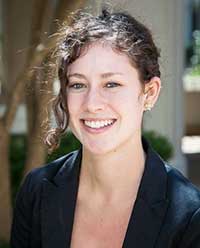
Somerville-Cambridge Elder Services Community Outreach Manager Colleen Morrissey.
By Colleen Morrissey
There are many scenarios that can result in people needing daily assistance, and in most cases people prefer to receive that care in-home.
For those who are MassHealth-eligible, the Adult Foster Care (AFC) and Personal Care Attendant (PCA) programs can be great options for receiving in-home care with no out-of-pocket costs.
Both programs can provide help with activities of daily living, such as bathing, dressing, eating, ambulating, transferring, or toileting. But there are some key differences between the programs. The following is a basic comparison of how the two programs work.
Personal Care Attendant
The PCA program helps people with disabilities manage their care by providing funds for participants to hire personal care attendants. The participant’s weekly budget of PCA hours is determined during the enrollment process. Once the enrollment is approved by MassHealth, the participant is free to hire care providers, who can be friends, family members, or someone else of their choosing.
In this model, the consumer (or their surrogate) is responsible for recruiting, training, and scheduling the PCAs, whereas the enrolling agency is responsible for skills training and annual redetermination of the arrangement.
The PCA program also has the following eligibility requirements:
- Must be eligible for MassHealth Standard or CommonHealth.
- Must require hands-on assistance with two or more activities of daily living.
- Approval required by primary care physician or nurse practitioner and MassHealth, who must determine that PCA services are medically necessary.
- PCAs cannot be legal guardians, stepparents of a minor, or a spouse.
- No age requirement.
Adult Foster Care
The AFC program helps elders and people with disabilities receive assistance through live-in caregivers. Each participant lives with a caregiver, who is responsible for meeting that person’s daily needs. In return the caregiver receives a tax-free stipend, along with two weeks paid time off annually.
AFC caregivers are often family members, but it’s not a requirement. In some cases, the AFC program can match eligible participants with caregivers. The AFC provider also furnishes ongoing support and training through registered nurses and social workers.
AFC has the following eligibility requirements:
- Participant must be eligible for MassHealth Standard or CommonHealth.
- Participant must be unable to live alone and require assistance with one or more activities of daily living.
- Participant must be at least 16 years old.
- Caregiver must live with the participant.
- Caregiver cannot be a spouse or legal guardian.
- Caregiver must be at least 18-years old
So to recap: both programs provide in-home support, but they take a very different route to get there. PCA participants can live alone and take an active role in hiring and managing their care providers. Conversely, AFC requires that participants live with their caregiver, and also provides ongoing professional training and advice.
In a very basic sense, PCA is often a good fit if the consumer prefers autonomy, and is able to hire and manage their PCA worker. AFC is often a good fit for people who need more support, typically from family or friends. But each case is unique, so be sure to research further, if it sounds like either would fit your needs.
Colleen Morrissey is a Community Outreach Manager at Somerville-Cambridge Elder Services. To learn more about enrolling in AFC and PCA programs, contact the Aging Information Center at SCES by calling 617-628-2601 or online at eldercare.org. For more information about the SCES AFC program, visit AdultFamilyCare.org.
















Reader Comments